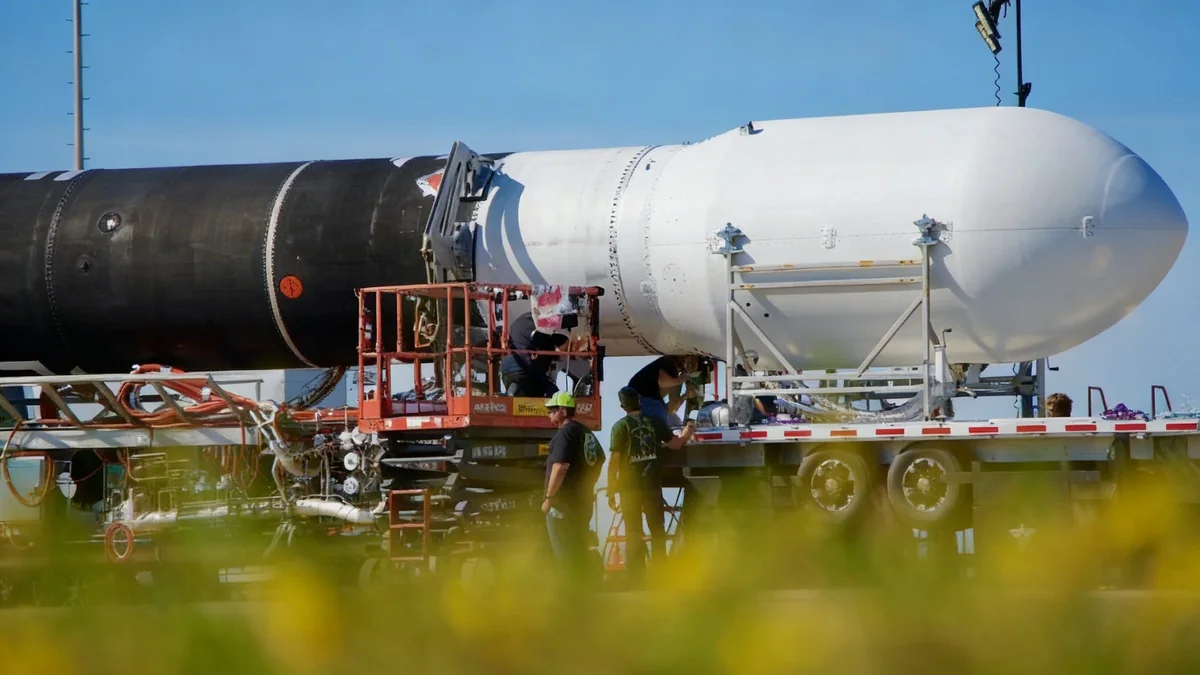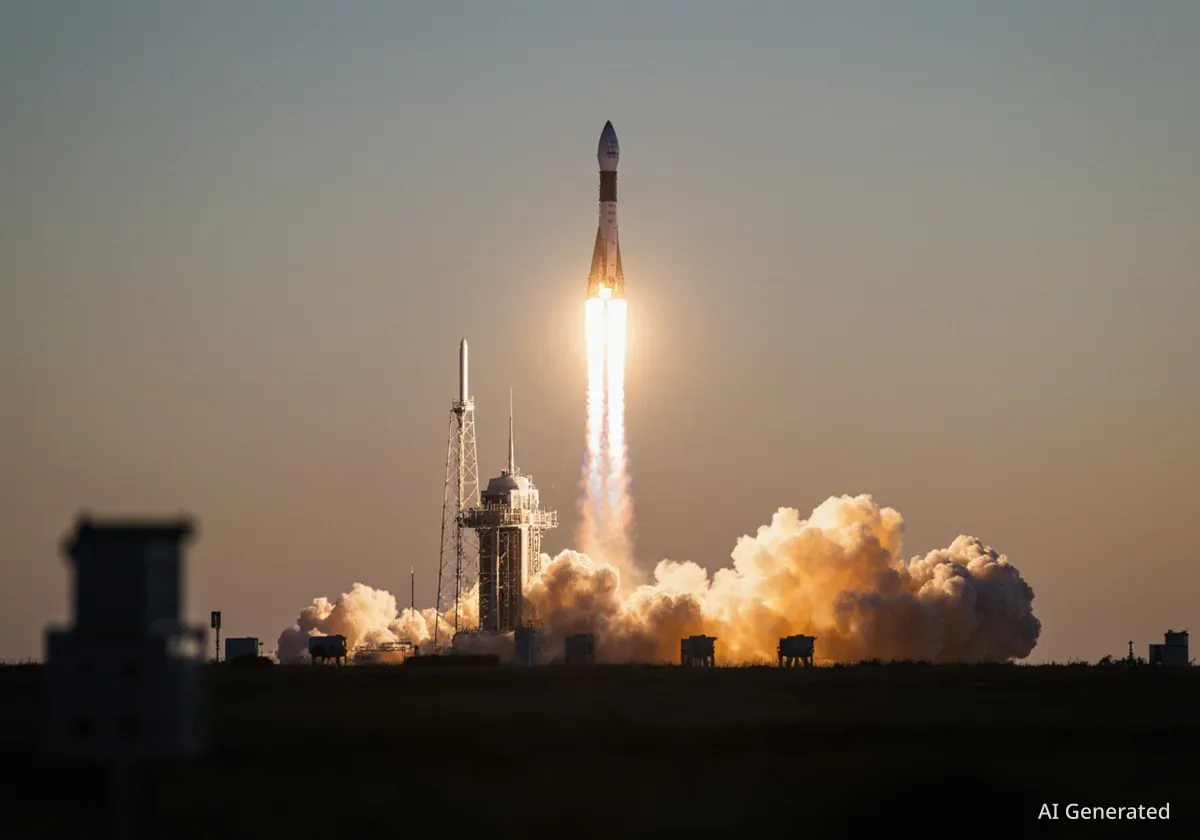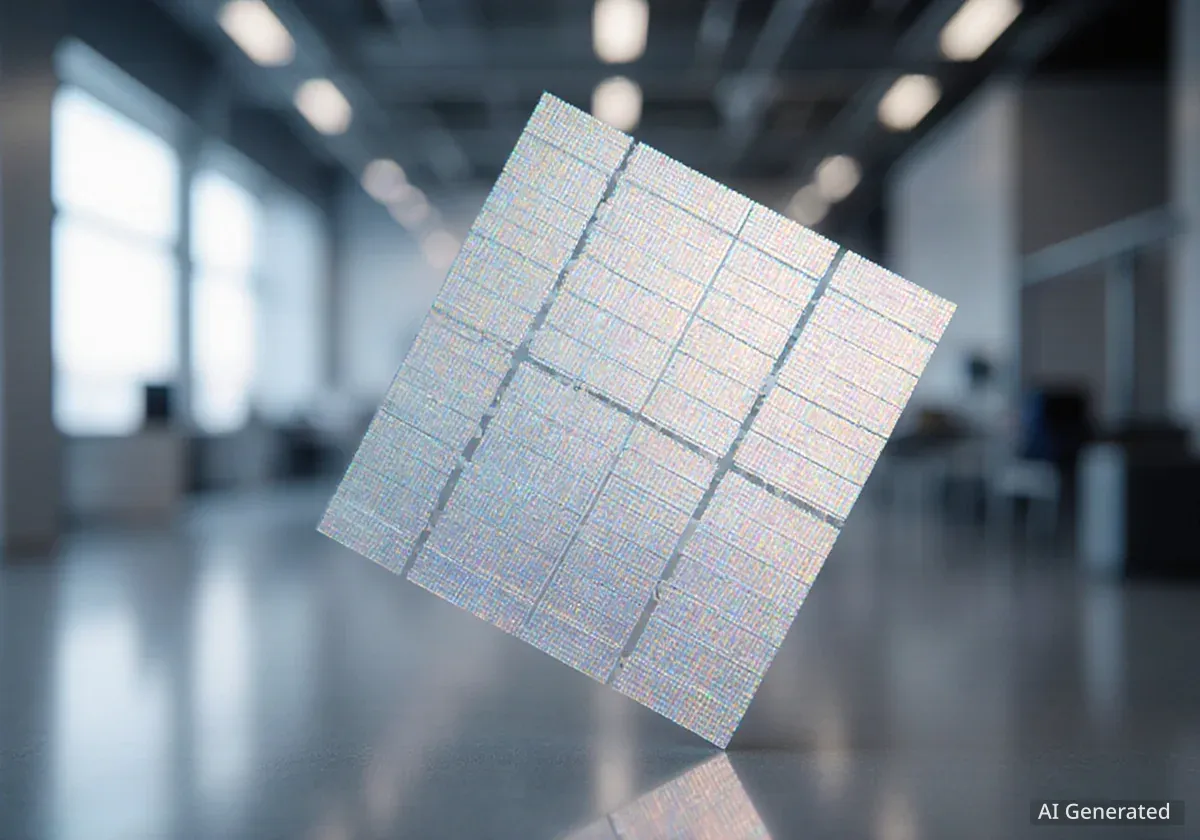A California-based startup has unveiled a plan to launch a fleet of satellites equipped with large mirrors, designed to reflect sunlight back to Earth after dark. The company, Reflect Orbital, suggests this technology could power solar farms overnight and aid in disaster relief, but the proposal has triggered immediate and widespread alarm among astronomers and environmental experts.
Key Takeaways
- Reflect Orbital has filed for FCC permission to launch its first satellite, aiming to sell reflected sunlight.
- Scientists warn the project could severely worsen light pollution, disrupt wildlife, and interfere with astronomical research.
- Experts question the project's feasibility, estimating thousands of satellites would be needed to achieve the company's goals.
- The plan revives a decades-old concept that has previously failed to materialize due to technical and practical challenges.
A Plan to Sell Sunlight
Reflect Orbital, a U.S. startup, has submitted a request to the Federal Communications Commission (FCC) to launch its first prototype satellite, named EARENDIL-1. The company's business model is based on a simple yet ambitious concept: using orbiting mirrors to illuminate specific locations on the ground during nighttime hours.
The proposed applications range from extending the operating hours of solar power plants to providing emergency lighting for rescue operations in disaster zones. The company has outlined plans for satellites with mirrors of various sizes, including 10x10 meters, 18x18 meters, and a massive 54x54 meters.
However, the company's vision is being met with significant skepticism. Critics argue that the fundamental premise of using a bright light from space to solve Earth-based problems is flawed and ignores potential consequences.
A Concept with a History
The idea of using mirrors in space is not new. It was first theorized in the 1920s. In 1993, Russia briefly deployed a 25-meter space mirror called Znamya 2, which created a five-kilometer-wide bright spot on the ground before burning up in the atmosphere over Canada a few days later. Similar proposals from U.S. and European agencies have never come to fruition.
Scientific Community Raises Red Flags
Astronomers, who are already contending with the growing problem of satellite constellations interfering with observations, have been among the most vocal critics. The primary concern is a dramatic increase in light pollution, fundamentally altering the night sky for everyone.
Aaron Boley, an astronomer and associate professor at the University of British Columbia, described the company's claims as containing "basic misunderstandings or willful misrepresentations." He highlighted the contradiction in the company's suggestion that its system could reduce light pollution.
"They were talking about reducing light pollution by having this giant light from space. And it really seems like they're trying to suggest that because it's natural sunlight, it's not like pollution,” Boley noted.
The technical feasibility of the project is also under scrutiny. Michael Brown, an associate professor in astronomy at Monash University, explained the immense scale required for such a system to be effective.
Thousands of Mirrors Needed
According to analysis by Professor Michael Brown, providing just 20% of the brightness of the midday sun would require a constellation of approximately 3,000 satellites equipped with 54-square-meter mirrors. To fully match the midday sun, the mirror in orbit would need to appear as large as the sun itself from the ground, spanning many kilometers.
Unintended Consequences for Wildlife and Research
Beyond the technical challenges, experts warn of severe and irreversible environmental impacts. The introduction of bright, moving light sources in the night sky could have devastating effects on nocturnal and migratory animals.
Disruption of Natural Cycles
John Barentine, founder of Dark Sky Consulting, worries about the biological impact. Many species rely on the darkness of night for critical behaviors like navigation, foraging, and mating.
"The expectation of animal biology is that the conditions will be dark around them," Barentine said. "I worry a bit that if you are, say, a migratory bird — who we now know are navigating by the stars at some level — that this could be very disorienting."
Even if the primary beam of light is focused on a specific target, the satellites themselves would be highly visible across vast areas. "These objects will appear like very bright stars in the sky moving slowly as seen from potentially hundreds of miles or kilometres away," Barentine added.
A New Threat to Astronomy
For astronomical observatories, the project represents another significant threat. The moving lights would create streaks across long-exposure images, rendering valuable scientific data useless. Reflect Orbital's promise not to shine light directly on observatories does little to ease these concerns.
"If I have bright objects that look like stars moving through the sky far from where the beam is reaching the ground, if it's anywhere close to an observatory, that's still a problem," Barentine explained. Furthermore, Professor Brown raised concerns about potential radio interference from the satellites' electronics, similar to issues already being caused by SpaceX's Starlink constellation.
The Future of the Night Sky
The debate over Reflect Orbital's proposal touches on a broader issue: the commercialization and industrialization of Earth's orbit. As the number of objects in space proliferates, questions about shared resources and the preservation of the natural sky become more urgent.
The satellites would likely operate in a polar, sun-synchronous orbit to function effectively. According to Professor Boley, this specific trajectory would cause the satellites to sweep across northern regions like Canada precisely as twilight occurs, a critical time for both wildlife and sky-gazers.
For many, the issue is also an aesthetic and philosophical one. "I sort of like the sky being sort of this shared wilderness," said Brown. "If you go somewhere where it's nice and dark and look at the night sky and have these constant reminders of technology, I think that's a bit of a loss." Reflect Orbital did not respond to requests for comment on the concerns raised by the scientific community.





